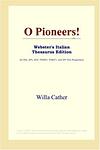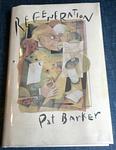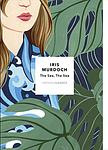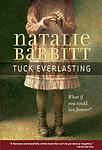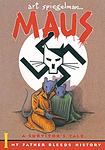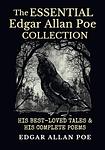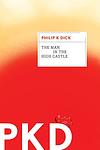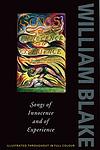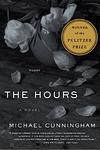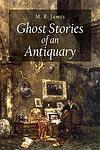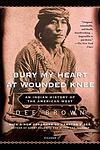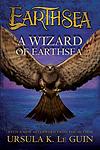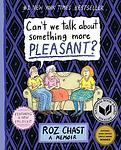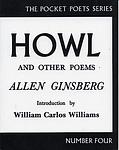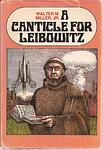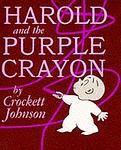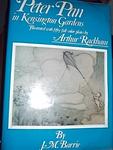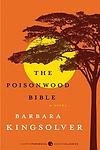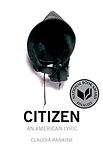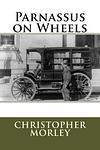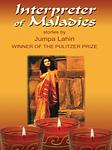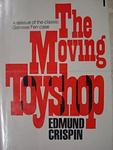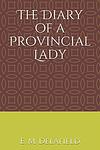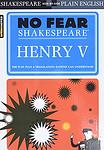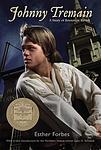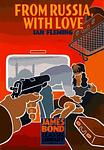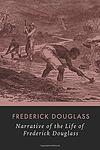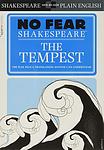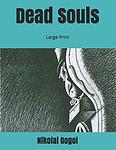1,000 Books to Read Before You Die: A Life-Changing List
This is one of the 305 lists we use to generate our main The Greatest Books list.
-
O Pioneers! by Willa Cather
"O Pioneers!" is a novel about a Swedish-American immigrant family's struggles and successes in the great plains during the late 19th century. The story centers on the family's eldest daughter, who inherits the family farm and devotes her life to making it thrive despite the hardships of weather, personal loss, and societal expectations. The novel explores themes of love, gender, land ownership, and the harsh realities of frontier life.
The 1358th Greatest Book of All Time -
The Red and the Black by Stendhal
The novel is a detailed psychological portrait of Julien Sorel, a young man from a provincial background who aspires to rise above his humble beginnings. He uses his intelligence and hypocrisy to advance in the post-Napoleonic French society, which is deeply divided by class and political loyalties. The story is a critique of the society's materialism and hypocrisy as Julien's ambitions lead him to a tragic end. The title refers to the contrasting uniforms of the army and the church, the two routes available to him for upward mobility.
The 52nd Greatest Book of All Time -
Life of Pi by Yann Martel
A young Indian boy named Pi Patel survives a shipwreck and finds himself adrift in the Pacific Ocean on a lifeboat with a Bengal tiger named Richard Parker. Over the course of 227 days, Pi uses his knowledge of animal behavior and survival skills to coexist with the tiger, ultimately leading to an unusual and deeply spiritual journey. The story explores themes of faith, survival, and the interpretation of reality.
The 572nd Greatest Book of All Time -
A Visit From The Goon Squad by Jennifer Egan
"A Visit from the Goon Squad" is an interconnected collection of stories about a group of characters whose lives intersect in the music industry. The narrative spans several decades, tracing the characters' journey from their youth to middle age. It explores themes of time, change, and the impact of technology on human relationships and the music industry. The novel is known for its experimental structure, including a chapter written as a PowerPoint presentation.
The 527th Greatest Book of All Time -
Regeneration by Pat Barker
"Regeneration" is a historical and anti-war novel set in a mental hospital during World War I. The narrative focuses on the experiences and interactions of a psychiatrist and his patients, most of whom are soldiers suffering from severe shell shock. The novel explores themes of masculinity, identity, and the psychological effects of war, while also critiquing the societal pressures and expectations that led many men to enlist and subsequently suffer from mental trauma.
The 380th Greatest Book of All Time -
Sophie's Choice by William Styron
Set in post-World War II Brooklyn, this novel follows the story of a young Southern writer who becomes friends with a Jewish scientist and a beautiful Polish Catholic survivor of the Auschwitz concentration camp. The narrative unravels the tragic love triangle between the three characters, with the woman's haunting past and the horrific choice she had to make in the concentration camp serving as the heart of the story. The book delves into themes of survival, guilt, and the struggle to find meaning in the aftermath of atrocities.
The 350th Greatest Book of All Time -
The Souls of Black Folk by W. E. B. Du Bois
This seminal work is a collection of essays that explores the history and condition of African Americans at the turn of the 20th century. It delves into the issues of race, class, and the socio-economic realities faced by black people post-emancipation. The author employs a combination of history, sociology, and personal narrative to present a powerful critique of American society, highlighting the struggle for civil rights, the importance of black spirituals, and the concept of "double consciousness" - the idea of viewing oneself through the lens of a society that sees you as inferior.
The 483rd Greatest Book of All Time -
The Sea, The Sea by Iris Murdoch
A successful and renowned London theatre director retires to a secluded house by the sea in an attempt to write his memoirs. His peaceful solitude is disrupted when he encounters his first love from decades ago and becomes obsessed with winning her back. As he spirals into self-delusion and madness, the narrative explores themes of love, obsession, and the subjective nature of reality.
The 287th Greatest Book of All Time -
The Portable Dorothy Parker by Dorothy Parker
This anthology is a comprehensive collection of the sharp-witted and poignant works of a celebrated American writer, known for her acerbic wit and keen observations of 20th-century urban life. It includes an array of her short stories, poems, essays, and reviews, showcasing her talents across different literary forms. The volume captures the essence of the author's incisive commentary on topics ranging from love and relationships to social issues, all delivered with her distinctive blend of humor and melancholy. Her writing remains a testament to her status as a formidable figure in American literature and a chronicler of the complexities of the human experience.
The 1696th Greatest Book of All Time -
Tuck Everlasting by Natalie Babbitt
This novel explores the concept of immortality through the story of a young girl who stumbles upon a family that has inadvertently gained eternal life after drinking from a magical spring. The family, having lived for centuries, shares their experiences and the burdens of their unending existence with the girl, who must then decide whether to keep their secret and live a mortal life or join them in everlasting life. The narrative delves into themes of life, death, and the natural order of things, as the girl grapples with the profound implications of a life without end.
The 964th Greatest Book of All Time -
In Cold Blood by Truman Capote
This true crime novel tells the story of the brutal 1959 murder of a wealthy farmer, his wife and two of their children in Holcomb, Kansas. The narrative follows the investigation led by the Kansas Bureau of Investigation that ultimately leads to the capture, trial, and execution of the killers. The book explores the circumstances surrounding this horrific crime and the effects it had on the community and the people involved.
The 76th Greatest Book of All Time -
Letters Of A Woman Homesteader by Elinore Pruitt Stewart
"Letters of a Woman Homesteader" is a collection of spirited and insightful letters written by a young widow who leaves Denver in 1909 to settle in the Wyoming frontier. Through her correspondence, she shares her experiences and adventures as she homesteads alone with her daughter, offering a vivid portrayal of the challenges and joys of rural life. Her letters reveal not only the hardships faced by homesteaders but also the moments of community, friendship, and personal growth, providing a unique female perspective on a predominantly male-driven endeavor.
The 8750th Greatest Book of All Time -
American Pastoral by Philip Roth
This novel tells the story of Seymour "Swede" Levov, a successful Jewish-American businessman and former high school athlete from Newark, New Jersey. Levov's happy and conventional upper middle class life is ruined by the domestic social and political turmoil of the 1960s during the presidency of Lyndon B. Johnson, which in the novel is seen through the eyes of the narrator, Nathan Zuckerman, a budding writer who idolizes the Levovs. The novel portrays the impact of this turmoil on Levov and his family, particularly his rebellious daughter who becomes involved in revolutionary political activities.
The 248th Greatest Book of All Time -
My Dog Tulip by J. R. Ackerley
The book is a memoir detailing the deep bond between a man and his German Shepherd, Tulip. The narrative explores the complexities of Tulip's character and the nuances of their relationship, from the challenges of dealing with her behavioral issues to the joys she brings into his life. The author provides a candid and often humorous look at the responsibilities of pet ownership, while also delving into the profound emotional connections that can form between humans and their animal companions. Through his reflections, the book celebrates the unique, unconditional love that pets can offer.
The 8750th Greatest Book of All Time -
Maus by Art Spiegelman
This graphic novel tells the story of a Holocaust survivor, as narrated by his son. The unique use of animals to represent different nationalities and ethnic groups adds a distinctive layer to the narrative. The protagonist's father recounts his experiences as a Polish Jew during World War II, offering a poignant depiction of the horrors of the Holocaust. The narrative also explores the complex father-son relationship, revealing the impact of such traumatic historical events on subsequent generations.
The 407th Greatest Book of All Time -
Complete Poems by E. E. Cummings
This collection brings together the vast and varied body of work from a distinctive American poet known for his radical experimentation with form, punctuation, spelling, and syntax. The poems challenge conventional boundaries of poetic expression, often delving into themes of love, nature, and the individual's relationship to the larger world. The poet's playful and often profound use of language invites readers to experience poetry as a visually and intellectually stimulating art form, breaking free from traditional structures to create a unique and deeply personal form of communication.
The 5297th Greatest Book of All Time -
All the President's Men by Bob Woodward, Carl Bernstein
"All the President's Men" is a non-fiction book that details the investigative journalism conducted by two reporters who uncover the details of the Watergate scandal that led to President Nixon's resignation. The book provides a detailed account of the reporters' struggles to uncover the truth, the obstacles they faced, their persistence, and the ultimate revelation of a political scandal that shook the United States.
The 620th Greatest Book of All Time -
As I Lay Dying by William Faulkner
The narrative unfolds through the eyes of 15 different characters over 59 chapters. It is the story of the death of Addie Bundren and her poor, rural family's quest and motivations—noble or selfish—to honor her wish to be buried in her hometown of Jefferson, Mississippi. As the Bundren family undertakes a journey to fulfill Addie's last wish, they face many hardships and personal revelations. The novel explores themes of existentialism, death, and the nature of family relationships.
The 67th Greatest Book of All Time -
The Prince by Niccolo Machiavelli
This classic work of political philosophy provides a pragmatic guide on political leadership and power, arguing that leaders must do whatever necessary to maintain authority and protect their states, even if it means compromising morality and ethics. The book explores various types of principalities, military affairs, the conduct of great leaders, and the virtues a prince should possess. It is known for its controversial thesis, which suggests that the ends justify the means in politics.
The 86th Greatest Book of All Time -
Memoirs of Hadrian by Marguerite Yourcenar
"Memoirs of Hadrian" is a historical novel that presents a fictional autobiography of the Roman Emperor Hadrian, who reigned from 117 to 138 AD. Narrated in the first person, the novel explores Hadrian's ascension to the throne, his administration, his love for the young Antinous, and his philosophical reflections on life and death. The narrative is framed as a letter to his successor, Marcus Aurelius, offering insights into the complexities of power, the nature of leadership, and the human condition.
The 310th Greatest Book of All Time -
The Man in the High Castle by Philip K. Dick
Set in an alternate history where the Axis powers won World War II, this novel explores life in a world where the United States is divided into three parts: the Pacific States of America, controlled by Japan; the Rocky Mountain States, a neutral buffer zone; and the United States of America, controlled by Nazi Germany. The story follows several characters, including a jewelry designer, a trade minister, and a German secret agent, as they navigate this dystopian reality. The narrative is further complicated by the existence of a banned novel that depicts an alternate reality where the Allies won the war, causing characters to question their understanding of reality.
The 515th Greatest Book of All Time -
A Portrait of the Artist as a Young Man by James Joyce
This novel is a semi-autobiographical account of a young man's intellectual and artistic development in late 19th-century Ireland. The protagonist struggles with issues of identity, faith, and nationality, ultimately rejecting the traditional values of his Catholic upbringing to pursue his own path as an artist. The book is renowned for its innovative narrative style and its exploration of themes such as individuality, freedom, and the nature of art.
The 68th Greatest Book of All Time -
Epic of Gilgamesh by Unknown
This ancient Mesopotamian epic follows the story of Gilgamesh, a demigod king who rules over the city of Uruk. Unhappy with his reign, the gods create a wild man named Enkidu to challenge him. However, Gilgamesh and Enkidu become close friends and embark on several adventures together, including defeating the demon Humbaba and killing the Bull of Heaven. After Enkidu's death, Gilgamesh becomes obsessed with finding immortality, leading him on a journey to meet Utnapishtim, the only human who has been granted eternal life. The narrative explores themes of friendship, mortality, and the meaning of life.
The 279th Greatest Book of All Time -
The Poems of Robert Frost by Robert Frost
This collection of poetry showcases the work of a renowned American poet, featuring his signature exploration of rural life, complex social and philosophical themes, and vividly depicted New England landscapes. The anthology includes some of his most famous poems, marked by a mastery of language, precise imagery, and a keen ear for the sound of spoken word. His poems often touch on the beauty of nature, the human condition, and the dichotomy between life and death, demonstrating his profound understanding of the human experience.
The 311th Greatest Book of All Time -
Songs of Innocence and Experience by William Blake
This collection of poems contrasts the innocent world of childhood with the often corrupt and oppressive world of adulthood. The "Songs of Innocence" section contains poems which are simple and happy, often written from the perspective of a child or a benevolent deity. The "Songs of Experience" section, however, contains darker, more complex poems that deal with serious themes such as poverty, injustice, and the abuse of power. The collection as a whole explores the two contrasting states of the human soul and encourages the reader to consider the balance between them.
The 902nd Greatest Book of All Time -
The Hours by Michael Cunningham
The novel is a reimagining of Virginia Woolf's "Mrs. Dalloway" and follows three women from different time periods, each of whom are profoundly affected by Woolf's work. The narrative alternates between Virginia Woolf as she writes "Mrs. Dalloway" in 1923, a 1950s housewife who is reading the novel, and a contemporary woman who is essentially living the life of the titular character. These three storylines eventually converge in a powerful exploration of mental illness, sexuality, and the transcendent power of literature.
The 1190th Greatest Book of All Time -
The Maltese Falcon by Dashiell Hammett
This classic detective novel follows a private investigator who is hired by a mysterious woman to track down her missing sister. The case quickly becomes complicated when the investigator is caught up in a dangerous hunt for a priceless artifact, the Maltese Falcon. As he navigates a world of treachery, deceit, and murder, he must use his wit and courage to outsmart his enemies and solve the mystery.
The 142nd Greatest Book of All Time -
A High Wind in Jamaica by Richard Hughes
This novel tells the story of a group of children who are accidentally kidnapped by pirates in the Caribbean after a hurricane destroys their home. The children adapt to life on the sea and form a unique bond with the pirates, causing them to question societal norms and morality. The book explores themes of childhood innocence, the loss of innocence, and the blurred lines between civilization and savagery.
The 1008th Greatest Book of All Time -
Dubliners by James Joyce
"Dubliners" is a collection of 15 short stories that portray the life of the Irish middle class in the early 20th century. Each story depicts an aspect of everyday life in Dublin, capturing the complexities of human experiences and emotions. The stories range from childhood to adulthood, reflecting on themes such as the paralysis of routine, the desire for escape, and the failure of both. The book is renowned for its vivid characterization and its exploration of the subtleties of the human condition.
The 438th Greatest Book of All Time -
Ghost Stories Of An Antiquary by M. R. James
"Ghost Stories of an Antiquary" is a collection of chilling tales that delve into the supernatural and macabre. Written by M. R. James, these stories transport readers to eerie settings, where ancient artifacts, haunted houses, and vengeful spirits lurk. With a masterful blend of suspense and atmospheric descriptions, James weaves narratives that leave readers on the edge of their seats, questioning the boundaries between the real and the supernatural. Each story is a haunting exploration of the human psyche and the terrifying unknown, making this collection a must-read for fans of classic ghost stories.
The 1475th Greatest Book of All Time -
Bury My Heart at Wounded Knee by Dee Alexander Brown
This book is a compelling historical narrative that chronicles the systematic decimation of Native American tribes in the United States during the late 19th century. The author uses council records, autobiographies, and firsthand descriptions to provide a detailed account of the battles, massacres, and broken treaties that led to the destruction of the Native American way of life. The book centers on significant events such as the Battle of Little Bighorn and the Wounded Knee Massacre, offering a voice to the often overlooked Native American perspective.
The 609th Greatest Book of All Time -
Atlas Shrugged by Ayn Rand
This novel unfolds in a dystopian United States where society's most productive citizens, including inventors, scientists and industrialists, refuse to be exploited by increasing social and economic demands. As a response, they withdraw their talents, leading to the collapse of the economy. The story presents the author's philosophy of objectivism, which values reason, individualism, and capitalism, and rejects collectivism and altruism. The narrative primarily follows Dagny Taggart, a railroad executive, and John Galt, a philosophical leader and inventor, as they navigate this societal breakdown.
The 225th Greatest Book of All Time -
A Wizard of Earthsea by Ursula K. Le Guin
This fantasy novel follows the story of a young boy named Ged who lives in a world of islands called Earthsea. Ged discovers he has a natural talent for magic and is sent to a school for wizards on the island of Roke. As he grows and learns, his arrogance leads him to unleash a shadow creature that he must then spend years trying to defeat. The book explores themes of balance, power, and the danger of hubris, as Ged learns to control his abilities and accept responsibility for his actions.
The 199th Greatest Book of All Time -
The Autobiography of Alice B. Toklas by Gertrude Stein
This book is an innovative and unconventional autobiography, penned from the perspective of the author's life partner, providing an intimate view into the lives of the Parisian avant-garde in the early 20th century. It offers a personal account of their life together, filled with anecdotes of their interactions with famous figures such as Picasso, Matisse, and Hemingway. The narrative also delves into the author's own thoughts and experiences, creating a unique blend of biography, autobiography, and personal memoir.
The 441st Greatest Book of All Time -
Fairy Tales and Stories by Hans Christian Andersen
This collection of stories offers a mix of enchanting fairy tales and narratives, many of which have become universally recognized classics. The stories range from tales of whimsical creatures and magical realms to poignant narratives that explore themes of love, sacrifice, and the human condition. Some tales are light-hearted and humorous, while others are profound and thought-provoking, demonstrating the breadth and depth of the author's storytelling abilities.
The 212th Greatest Book of All Time -
Household Tales by Brothers Grimm
"Household Tales" is a collection of German fairy tales that includes popular stories such as "Cinderella", "Little Red Riding Hood", "Hansel and Gretel", and "Snow White". These narratives, often featuring magical elements and moral lessons, have been influential in shaping Western popular culture. The tales range from the whimsical and humorous to the dark and cautionary, reflecting a wide array of human experiences and emotions.
The 316th Greatest Book of All Time -
Can’t We Talk About Something More Pleasant? by Roz Chast
"Can't We Talk About Something More Pleasant?" is a graphic memoir by Roz Chast that explores her relationship with her aging parents as they approach the end of their lives. Chast uses her signature humor and illustrations to navigate the difficult topics of illness, death, and family dynamics. The book captures the universal experience of caring for aging parents and the emotional toll it can take on adult children.
The 7094th Greatest Book of All Time -
The Brothers Karamazov by Fyodor Dostoevsky
This classic novel explores the complex, passionate, and troubled relationship between four brothers and their father in 19th century Russia. The narrative delves into the themes of faith, doubt, morality, and redemption, as each brother grapples with personal dilemmas and family conflicts. The story culminates in a dramatic trial following a murder, which serves as a microcosm of the moral and philosophical struggles faced by each character, and by extension, humanity itself.
The 32nd Greatest Book of All Time -
Antigone by Sophocles
This ancient Greek tragedy follows the story of Antigone, a young woman who defies the king's edict in order to bury her brother according to their religious customs. The king, her uncle, sentences her to death for her disobedience, leading to a series of tragic events including his own son's suicide. The play explores themes of loyalty, honor, obedience, and the conflict between the laws of the state and the laws of the gods.
The 138th Greatest Book of All Time -
Pattern Recognition by William Gibson
The novel follows Cayce Pollard, a marketing consultant with an intuitive sensitivity to corporate symbols, as she embarks on a global quest to find the creator of mysterious video clips that have garnered a cult following on the internet. Her journey takes her from London to Tokyo and then to Russia, navigating the intersecting worlds of advertising, technology, and espionage. As she delves deeper into the origin of the footage, she encounters various characters with their own vested interests, and her ability to discern patterns becomes crucial in solving the puzzle. The narrative explores themes of globalization, identity, and the impact of technology on society.
The 8423rd Greatest Book of All Time -
Howl and Other Poems by Allen Ginsberg
"Howl and Other Poems" is a collection of verse that critiques and challenges societal norms and conventions, particularly those of post-World War II America. The title poem, "Howl", is a raw and passionate indictment of capitalist society and its suppression of individuality and human freedom. The collection also explores themes of mental illness, sexuality, spirituality, and the human condition, with a focus on the beatnik and countercultural movements of the time.
The 800th Greatest Book of All Time -
The Divine Comedy by Dante Alighieri
In this epic poem, the protagonist embarks on an extraordinary journey through Hell (Inferno), Purgatory (Purgatorio), and Paradise (Paradiso). Guided by the ancient Roman poet Virgil and his beloved Beatrice, he encounters various historical and mythological figures in each realm, witnessing the eternal consequences of earthly sins and virtues. The journey serves as an allegory for the soul's progression towards God, offering profound insights into the nature of good and evil, free will, and divine justice.
The 27th Greatest Book of All Time -
The Grass Is Singing by Doris May Lessing
Set in 1940s Southern Rhodesia (now Zimbabwe), this novel explores the life of a white woman, Mary, who marries a poor farmer, Dick Turner, and moves to the African veld. The story delves into their failing farm, their troubled marriage, and the racial tension surrounding their life. The isolation and harsh African environment take a toll on Mary's sanity, leading to a complex and ultimately fatal relationship with her black houseboy, Moses. The book provides a stark examination of the inherent racism of colonialism and the tragic consequences it can have on both the oppressors and the oppressed.
The 1394th Greatest Book of All Time -
Book Lust by Nancy Pearl
"Book Lust" is a comprehensive guide for avid readers, offering a wide array of thematic book recommendations across various genres and topics. Compiled by a seasoned librarian, the book serves as a resource for discovering new and interesting reads, providing brief overviews and categorizing books in unique and engaging ways. Whether readers are looking for novels about the sea, memoirs about personal journeys, or intriguing non-fiction, this guide helps navigate the vast world of literature, sparking the curiosity and interest of bibliophiles looking to expand their reading horizons.
The 10257th Greatest Book of All Time -
Leaves of Grass by Walt Whitman
"Leaves of Grass" is a collection of poetry that celebrates the human form and condition, while also exploring themes of democracy, nature, love, and friendship. The book, known for its departure from traditional poetic form, features a free verse style and the use of everyday language. The poet presents himself as both an individual and a universal figure, representing the collective American experience and identity. The collection is also notable for its controversial content at the time of its publication, including candid depictions of sexuality.
The 90th Greatest Book of All Time -
Paradise Lost by John Milton
"Paradise Lost" is an epic poem that explores the biblical story of Adam and Eve's fall from grace in the Garden of Eden. It delves into their temptation by Satan, their subsequent expulsion, and the consequences of their disobedience. The narrative also provides a complex portrayal of Satan as a rebellious angel, who, after being cast out of Heaven, seeks revenge by causing mankind's downfall. The poem is a profound exploration of free will, divine justice, and the human struggle with good and evil.
The 107th Greatest Book of All Time -
A Canticle for Leibowitz by Walter M. Miller
"A Canticle for Leibowitz" is a post-apocalyptic science fiction novel that explores the cyclical nature of history through the lens of a Catholic monastery in the American Southwest. After a devastating nuclear war, the monks of the Albertian Order of Leibowitz work to preserve the remnants of mankind's scientific knowledge until the world is again ready for it. Over the course of centuries, civilization rises and falls, wars are fought, and scientific advancements are rediscovered and then lost again. The novel is a poignant commentary on the potential for humanity to repeat its mistakes.
The 1061st Greatest Book of All Time -
The Name of the Rose by Umberto Eco
Set in a wealthy Italian monastery in the 14th century, the novel follows a Franciscan friar and his young apprentice as they investigate a series of mysterious deaths within the monastery. As they navigate the labyrinthine library and decipher cryptic manuscripts, they uncover a complex plot involving forbidden books, secret societies, and the Inquisition. The novel is a blend of historical fiction, mystery, and philosophical exploration, delving into themes of truth, knowledge, and the power of the written word.
The 108th Greatest Book of All Time -
Harold and the Purple Crayon by Crockett Johnson
In this classic children's book, a young boy named Harold embarks on a whimsical adventure using nothing but his imagination and a purple crayon. With the crayon in hand, Harold draws his own world, creating landscapes, obstacles, and companions as he goes. His journey is a testament to creativity and the power of the mind, as he learns to problem-solve and navigate through the various scenarios he conjures up. The simple yet profound narrative, accompanied by distinctive purple-lined illustrations, celebrates the boundless possibilities of a child's imagination.
The 2903rd Greatest Book of All Time -
Burr by Gore Vidal
"Burr" is a historical novel that reexamines the life and times of Aaron Burr, the third Vice President of the United States, who is most famous for killing Alexander Hamilton in a duel. The narrative is presented in the form of a fictional memoir written by Burr's private secretary, which provides a counterpoint to the traditional portrayal of Burr as a villain. The book explores Burr's political career, his relationships, and his role in the founding of the United States, with a focus on his controversial actions and the complex dynamics of the early American republic.
The 1725th Greatest Book of All Time -
Sailing Alone Around The Room by Billy Collins
"Sailing Alone Around the Room" is a collection of poetry that combines both new and selected works from previous publications, showcasing the author's distinctive voice and accessible style. The poems explore everyday occurrences and thoughts with humor, wit, and poignant insights, inviting readers into a reflective, intimate space where the mundane becomes significant. Through his verse, the poet navigates themes of solitude, nature, love, and the act of writing itself, all while maintaining a conversational tone that makes poetry feel approachable and relatable to a wide audience.
The 10121st Greatest Book of All Time -
Memento Mori by Muriel Spark
"Memento Mori" is a darkly humorous novel that explores the lives of a group of elderly friends who are each reminded of their mortality through mysterious phone calls where the caller simply states, "Remember you must die." As the characters confront their pasts and face their dwindling futures, the story delves into themes of aging, memory, and the inevitability of death, revealing the complexities of human relationships and the secrets that bind them together. The novel combines wit with a penetrating insight into the human condition, making it a poignant reflection on life and the universal journey towards death.
The 8750th Greatest Book of All Time -
Life Among The Savages by Shirley Jackson
"Life Among the Savages" is a humorous and candid memoir that recounts the author's experiences of raising a family in rural Vermont. Through a series of witty and sharply observed vignettes, the book explores the chaotic and often absurd realities of parenting. The narrative delves into the daily challenges and adventures faced by the family, from dealing with the quirks of a dilapidated old house to navigating the social intricacies of small-town life, all while managing the unpredictable antics of her children. The author's sharp wit and keen insights provide a refreshing perspective on the trials and joys of domestic life.
The 8750th Greatest Book of All Time -
Peter Pan by J. M. Barrie
This classic children's novel is about a boy named Peter Pan who never grows up and lives in a magical place called Neverland. Peter Pan, along with his fairy sidekick Tinker Bell, invites the Darling children - Wendy, John, and Michael - to Neverland where they encounter pirates, mermaids, and other fantastic adventures. The story explores themes of innocence, friendship, bravery, and the bittersweet nature of growing up.
The 529th Greatest Book of All Time -
The Poisonwood Bible by Barbara Kingsolver
The Poisonwood Bible is a novel that follows the experiences of a missionary family in the Belgian Congo during the 1960s. The story is told from the perspective of the wife and four daughters of the Baptist minister who drags his family into the politically volatile Congo on a mission to save souls. The novel explores themes of cultural arrogance, religious zeal, and the clash of Western and African values, as well as the personal growth and self-discovery of the women in the family as they grapple with the harsh realities of their new life and the fallout from their father's single-minded vision.
The 392nd Greatest Book of All Time -
Cider with Rosie by Laurie Lee
"Cider with Rosie" is a memoir that captures the experiences of a young boy growing up in a small Cotswold village in England during the early 20th century. The narrative vividly portrays the simplicity and beauty of rural life, while also exploring the complexities of adolescence and first love. It is a nostalgic and evocative account of a bygone era, filled with memorable characters and richly detailed descriptions of the natural world.
The 658th Greatest Book of All Time -
Middlemarch by George Eliot
Set in the fictitious English town of Middlemarch during the early 19th century, the novel explores the complex web of relationships in a close-knit society. It follows the lives of several characters, primarily Dorothea Brooke, a young woman of idealistic fervor, and Tertius Lydgate, an ambitious young doctor, who both grapple with societal expectations, personal desires, and moral dilemmas. Their stories intertwine with a rich tapestry of other townsfolk, reflecting themes of love, marriage, ambition, and reform, making a profound commentary on the human condition.
The 23rd Greatest Book of All Time -
Midnight In The Garden Of Good And Evil by John Berendt
The book is a captivating blend of true crime and travelogue set in the sultry Southern city of Savannah, Georgia. It revolves around the mysterious shooting of a local male prostitute by a respected antiques dealer. As the narrative unfolds, the reader is introduced to a quirky spectrum of Savannah's residents, from a drag queen to a voodoo priestess. The rich descriptions of Savannah's public squares and Gothic architecture, along with its dark, hidden secrets, create a compelling atmosphere that blurs the lines between reality and fantasy, ultimately questioning the nature of truth and justice.
The 9773rd Greatest Book of All Time -
Foundation by Isaac Asimov
This science fiction novel centers around Hari Seldon, a mathematician who has developed a branch of mathematics known as psychohistory. With it, he can predict the future on a large scale. Seldon foresees the imminent fall of the Galactic Empire, which encompasses the entire Milky Way, and a dark age lasting 30,000 years before a second great empire arises. To shorten this period of barbarism, he creates two Foundations at opposite ends of the galaxy. The book follows the first few centuries of the Foundation's existence, focusing on the scientists as they develop new technologies and negotiate with neighboring planets.
The 250th Greatest Book of All Time -
The Ghost Road by Pat Barker
"The Ghost Road" is a historical novel set during World War I that follows the experiences of a British army officer undergoing treatment for shell shock at a mental hospital. The narrative alternates between his perspective and that of his psychiatrist, who is fascinated by the psychological effects of war. The novel explores themes of trauma, memory, and the brutal realities of war, while also delving into the psychiatrist's own past experiences with a headhunting tribe in the South Pacific.
The 2265th Greatest Book of All Time -
The Fire Next Time by James Baldwin
This book is a powerful exploration of race relations in America in the early 1960s. The author presents his experiences and observations in the form of two essays. The first is a letter to his 14-year-old nephew, discussing the role of race in American history. The second essay takes a broader look at the civil rights movement and the author's own experiences with religion and identity. Throughout, the author presents a passionate plea for the recognition of the humanity and dignity of all people, regardless of race.
The 1146th Greatest Book of All Time -
Midnight's Children by Salman Rushdie
The novel tells the story of Saleem Sinai, who was born at the exact moment when India gained its independence. As a result, he shares a mystical connection with other children born at the same time, all of whom possess unique, magical abilities. As Saleem grows up, his life mirrors the political and cultural changes happening in his country, from the partition of India and Pakistan, to the Bangladesh War of Independence. The story is a blend of historical fiction and magical realism, exploring themes of identity, fate, and the power of storytelling.
The 38th Greatest Book of All Time -
Desert Solitaire by Edward Abbey
Desert Solitaire is a collection of vignettes about life in the wilderness that reflects on the fierce beauty of the desert, the cruel indifference of nature, and the reckless destruction of the American West. The book, based on the author's experiences as a park ranger in Utah, explores the spiritual and philosophical dimensions of the desert environment, critiquing the commercialization and urbanization of the wild, and underscoring the importance of preserving natural landscapes.
The 835th Greatest Book of All Time -
Faust by Johann Wolfgang von Goethe
The book is a tragic play in two parts that tells the story of a scholarly man named Faust, who becomes dissatisfied with his life and makes a pact with the devil, Mephistopheles. In exchange for unlimited knowledge and worldly pleasures, Faust agrees to give his soul to Mephistopheles after death. The narrative explores themes of ambition, despair, love, and redemption, ultimately leading to Faust's salvation.
The 84th Greatest Book of All Time -
Citizen: An American Lyric by Claudia Rankine
"Citizen: An American Lyric" is a compelling and thought-provoking exploration of racial prejudice in contemporary America. The book, written in a blend of poetry, prose, and visual images, delves into the everyday experiences and microaggressions that people of color face. It also addresses larger events from the news that have impacted the Black community. The book is a powerful commentary on race, identity, and belonging, challenging readers to confront their own biases and perceptions.
The 2639th Greatest Book of All Time -
Parnassus On Wheels by Christopher Morley
"Parnassus on Wheels" is a charming novel that follows the adventures of Helen McGill, a woman who decides to break free from her mundane life by buying a traveling book wagon from Roger Mifflin, the spirited peddler of literature. As Helen takes to the road to sell books and explore the countryside, she discovers the joys of independence, the pleasures of reading, and the importance of following one's dreams. The story is a delightful exploration of freedom, friendship, and the transformative power of literature.
The 8750th Greatest Book of All Time -
Way of All Flesh by Samuel Butler
The novel follows the life of Ernest Pontifex, from his birth in the early 19th century until his middle age, and his struggle against the restrictive morality of Victorian England. Raised in a stiflingly oppressive household by his hypocritical clergyman father and submissive mother, Ernest eventually rebels against his upbringing, leading to his imprisonment for a minor crime. Upon his release, he rejects his past life and religious beliefs, eventually finding happiness and success as a writer. The novel provides a scathing satire of Victorian-era attitudes towards religion and family life.
The 544th Greatest Book of All Time -
The Nicomachean Ethics by Aristotle
This philosophical work focuses on the concept of ethics, specifically virtue ethics, and how it relates to a person's character and happiness. The author argues that happiness is the highest good and the end goal of life, and that it is achieved not through pleasure, but through virtuous actions. The book also explores the nature of practical reasoning, the different kinds of virtues, the importance of friendship, and the role of luck in human welfare.
The 499th Greatest Book of All Time -
The Death of the Heart by Elizabeth Bowen
"The Death of the Heart" is a novel set in the interwar period, focusing on a sixteen-year-old orphan girl who moves in with her wealthy half-brother and his wife in London. As she navigates the complexities of her new social environment, she develops a crush on a friend of the family, leading to a series of misunderstandings and betrayals. The novel explores themes of innocence, love, betrayal, and the harsh realities of adulthood.
The 422nd Greatest Book of All Time -
The Tale of Genji by Murasaki Shikibu
"The Tale of Genji" is a classic work of Japanese literature from the 11th century, often considered the world's first novel. The story revolves around the life of Genji, the son of an emperor, exploring his political rise, romantic relationships, and the complex court life of the Heian era. The novel is celebrated for its detailed characterization and its analysis of the different forms of love.
The 155th Greatest Book of All Time -
A Fan's Notes by Frederick Exley
The novel is a semi-autobiographical account of a man who is obsessed with the New York Giants and their star player, Frank Gifford. He navigates through his life dealing with alcoholism, failed relationships, and multiple stays in mental institutions. Despite his struggles, he aspires to be a great writer. His obsession with football serves as a metaphor for his longing for success and his struggle with his failures.
The 5535th Greatest Book of All Time -
The Mask of Dimitrios by Eric Ambler
The book is a classic espionage thriller that revolves around a crime novelist who becomes intrigued by the story of a notorious criminal, Dimitrios. The novelist's curiosity leads him on a journey across Europe, tracing the steps of Dimitrios, who is believed to be dead. As he delves deeper into Dimitrios's world of political intrigue, drug trafficking, and murder, he finds himself caught up in a dangerous game with life-threatening consequences.
The 752nd Greatest Book of All Time -
Interpreter of Maladies by Jhumpa Lahiri
"Interpreter of Maladies" is a collection of nine short stories, each exploring different aspects of life, love, and identity. The stories are set in both India and America, and the characters often grapple with issues of cultural identity, displacement, and the complexities of relationships. Themes like marital issues, communication breakdowns, and the struggle to fit in are prevalent throughout the stories, offering a poignant and nuanced glimpse into the human experience.
The 876th Greatest Book of All Time -
Fictions by Jorge Luis Borges
"Collected Fiction" is a compilation of stories by a renowned author that takes readers on a journey through a world of philosophical paradoxes, intellectual humor, and fantastical realities. The book features a range of narratives, from complex, multi-layered tales of labyrinths and detective investigations, to metaphysical explorations of infinity and the nature of identity. It offers an immersive and thought-provoking reading experience, blurring the boundaries between reality and fiction, past and present, and the self and the universe.
The 101st Greatest Book of All Time -
The Moving Toyshop by Edmund Crispin
In this classic British detective novel, a poet on holiday in Oxford stumbles upon a woman's body in a toyshop at night, only to find the shop has vanished by morning. Teaming up with an eccentric literature professor, the poet embarks on a whimsical and cerebral quest to solve the mystery, navigating a labyrinth of literary references, quirky characters, and puzzling clues. The story combines elements of farce and traditional whodunit, leading to a climactic chase and an unexpected twist, all set against the backdrop of the historic university town.
The 1224th Greatest Book of All Time -
The Absolutely True Diary of a Part-Time Indian by Sherman Alexie
The book is a semi-autobiographical novel that follows a Native American teenager who leaves his school on the Spokane Indian Reservation to attend an all-white high school in a neighboring town. The protagonist grapples with his own identity, the perceptions and prejudices of his new classmates, and the harsh realities of life on the reservation. Throughout the story, he uses humor and his passion for drawing cartoons to navigate the challenges he encounters.
The 2373rd Greatest Book of All Time -
Diary Of A Provincial Lady by E. M. Delafield
This book is a humorous account of the daily life of an upper-middle-class English woman living in the country during the 1930s. Told through diary entries, it captures the protagonist's struggles with domestic life, social obligations, and financial difficulties, all while attempting to maintain her dignity and a sense of humor. The diary entries are filled with witty observations and interactions with a cast of characters, including her husband, children, and various members of the local society, offering a delightful and insightful critique of the social norms and expectations of her time.
The 2903rd Greatest Book of All Time -
Flaubert's Parrot by Julian Barnes
The novel centers around a retired doctor's obsession with the life and works of Gustave Flaubert, a 19th-century French writer. The doctor's fascination leads him on a quest to find a stuffed parrot that once belonged to the writer. The novel is a blend of biography, literary criticism, and personal memoir, and it explores themes such as the nature of art and the difficulties of interpreting the past.
The 632nd Greatest Book of All Time -
The Bible by Unknown
The Bible is the central religious text of Christianity, comprising the Old and New Testaments. It features a diverse collection of writings including historical narratives, poetry, prophecies, and teachings. These texts chronicle the relationship between God and humanity, detail the life, death, and resurrection of Jesus Christ, and follow the early Christian church. Considered divinely inspired by believers, it serves as a foundational guide for faith and practice, influencing countless aspects of culture and society worldwide.
The 34th Greatest Book of All Time -
The Trial by Franz Kafka
The book revolves around a bank clerk who wakes one morning to find himself under arrest for an unspecified crime. Despite not being detained, he is subjected to the psychological torment of a bizarre and nightmarish judicial process. The story is a critique of bureaucracy, exploring themes of guilt, alienation and the inefficiency of the justice system.
The 39th Greatest Book of All Time -
The Common Reader by Virginia Woolf
"The Common Reader" is a collection of essays that explores the art and act of reading through the lens of various literary critiques and personal reflections. The author delves into the works of past writers, from Greek poets to English novelists, examining not only the texts themselves but also the broader cultural and historical contexts in which they were written. Through these essays, the author advocates for the pleasures and complexities of reading, emphasizing its importance in understanding human nature and society. The work is celebrated for its insightful analysis and eloquent prose, inviting readers to reconsider their own approaches to literature.
The 8750th Greatest Book of All Time -
Nicholas Nickleby by Charles Dickens
The story follows Nicholas Nickleby, a young man who becomes the head of his family after his father's death. He and his family are left penniless by an unscrupulous uncle, who also sends Nicholas to work in a cruel and abusive boarding school. Nicholas eventually escapes, travels the country, meets a variety of eccentric characters, and has many adventures. Throughout his journey, Nicholas struggles against adversity and the greed and cruelty of others, while aiming to protect his sister and mother. The novel is a social critique, highlighting the terrible conditions of schools and the plight of the poor in 19th-century England.
The 885th Greatest Book of All Time -
Henry V by William Shakespeare
The play follows the young King Henry V as he ascends to the throne following his father's death. Despite his wild and reckless past, Henry proves himself to be a capable leader and an inspiring orator. He leads his outnumbered English army to victory against the French at the Battle of Agincourt during the Hundred Years' War. The play explores themes of leadership, power, war, and nationalism, and is known for its powerful speeches and dramatic battle scenes.
The 2788th Greatest Book of All Time -
Persepolis by Marjane Satrapi
This graphic novel is a memoir that provides a personal account of the author's childhood and young adult years in Iran during and after the Islamic revolution. The story portrays the impact of war, political upheaval, and religious extremism on ordinary people, while also exploring themes of identity, resilience, and the power of storytelling. Despite the harsh realities the protagonist faces, the narrative also includes moments of humor and warmth, providing a nuanced view of life in Iran during this tumultuous period.
The 629th Greatest Book of All Time -
Fear and Loathing in Las Vegas by Hunter S. Thompson
This book is a semi-autobiographical novel that chronicles the adventures of a journalist and his attorney as they embark on a drug-fueled trip to Las Vegas. The narrative is a wild and hallucinatory exploration of the American Dream, filled with biting social commentary and outrageous antics. The protagonist's quest for the American Dream quickly devolves into an exploration of the darker side of human nature, highlighting the excesses and depravities of 1960s American society.
The 172nd Greatest Book of All Time -
Mahabharata by Vyasa
The book is an English translation of the ancient Indian epic, originally written in Sanskrit, which tells the story of a great war that took place between two groups of cousins, the Kauravas and the Pandavas. The narrative explores themes of duty, righteousness, and honor while also featuring a rich array of gods, goddesses, and supernatural beings. It is not only a tale of war and conflict, but also a profound philosophical and spiritual treatise, containing the Bhagavad Gita, a sacred text of Hindu philosophy.
The 315th Greatest Book of All Time -
Richard Ii by William Shakespeare
The play centers around the tragic downfall of Richard II, the King of England, whose mismanagement and poor decisions lead to his eventual overthrow. Richard's reign is marked by his financial exploitation of the nobility, which culminates in the seizure of lands from his deceased uncle to fund a war in Ireland. This act provokes the anger of his cousin, Henry Bolingbroke, who returns from exile to reclaim his inheritance and ultimately usurps the throne. The drama explores themes of kingship, power, identity, and the divine right of kings, culminating in Richard's introspective imprisonment and eventual murder, which sets the stage for further turmoil in England's monarchy.
The 8750th Greatest Book of All Time -
Johnny Tremain by Esther Forbes
This novel is a historical fiction set in Boston during the early stages of the American Revolution. It follows the story of a young silversmith apprentice, whose life takes a dramatic turn after a crippling hand injury prevents him from continuing his craft. As he searches for a new purpose, he becomes involved with the Sons of Liberty, participating in pivotal events leading up to the American Revolution. Through his experiences, he encounters historical figures, faces moral dilemmas, and grows from a selfish adolescent into a patriotic young man, offering readers a vivid glimpse into the struggles and spirit of the time.
The 4090th Greatest Book of All Time -
The Day of the Jackal by Frederick Forsyth
"The Day of the Jackal" is a suspenseful thriller that revolves around an unnamed and highly skilled professional assassin who is hired by a French dissident paramilitary organization to kill Charles de Gaulle, the President of France. The novel intricately details the meticulous preparations of the assassin, his many disguises, and his method of operation, while also depicting the desperate efforts of the French police to uncover his identity and prevent the assassination, leading to a tense cat-and-mouse chase across Europe.
The 385th Greatest Book of All Time -
From Russia with Love by Ian Fleming
In this thrilling spy novel, British secret agent James Bond is targeted by a Russian intelligence group, who lures him into a trap using a beautiful cipher clerk as bait. The plot thickens as Bond falls for the clerk and must navigate a series of dangerous encounters with Russian operatives, including a deadly face-off with a sadistic killer. The story is a blend of action, suspense, and romance, set against the backdrop of the Cold War.
The 1365th Greatest Book of All Time -
Narrative of the Life of Frederick Douglass by Frederick Douglass
This autobiographical book provides a first-hand account of the life of a former slave, chronicling his experiences from his early years in bondage, his struggle to teach himself to read and write, his daring escape to freedom, and his subsequent rise as a prominent abolitionist. The narrative is a powerful exploration of the physical and psychological effects of slavery, making it a significant work in American history.
The 535th Greatest Book of All Time -
The Complete Poetry and Selected Prose of John Donne by John Donne
This book is a comprehensive collection of the renowned metaphysical poet's work, featuring all of his poetry and a selection of his prose. The collection includes his sensual and spiritual poems, satires, elegies, and sermons, showcasing his unique blend of intellect and emotion, wit and wisdom. The book offers readers a deep insight into the poet's complex mind and a thorough understanding of his contributions to 17th-century English literature.
The 653rd Greatest Book of All Time -
The Expedition of Humphry Clinker by Tobias Smollett
This novel is a humorous epistolary narrative, told through a series of letters, that follows the adventures of the Bramble family as they travel throughout England and Scotland. The family's travels are filled with a variety of comical incidents, and their encounters with different people and places provide a satirical commentary on 18th century British society. The novel also explores themes of class, romance, and the contrast between city and country life.
The 850th Greatest Book of All Time -
The Count of Monte Cristo by Alexandre Dumas
A young sailor, unjustly accused of treason, is imprisoned without trial in a grim fortress. After a daring escape, he uncovers a hidden treasure and transforms himself into the mysterious and wealthy Count of Monte Cristo. He then sets out to exact revenge on those who wronged him, using his newfound power and influence. Throughout his journey, he grapples with questions about justice, vengeance, and whether ultimate power can ultimately corrupt.
The 105th Greatest Book of All Time -
Blue Highways: A Journey into America by William Least Heat-Moon
This travel memoir follows the author's journey through the backroads of the United States, which he refers to as "Blue Highways" on maps. After losing his job and separating from his wife, he embarks on a 14,000-mile trip, steering clear of cities and interstates to explore small towns and meet their inhabitants. The narrative offers a poignant and introspective exploration of America's landscapes, history, and diverse cultures, providing a unique perspective on the country's lesser-known regions.
The 1203rd Greatest Book of All Time -
The Tempest by William Shakespeare
"The Tempest" is a classic play about a sorcerer and rightful Duke of Milan who has been stranded on an island for 12 years with his daughter after being betrayed by his brother. Using his magical powers and the help of an airy spirit, he conjures a storm to shipwreck his brother and other enemies on the island. The narrative explores themes of revenge, power, magic, and forgiveness as the sorcerer manipulates events on the island to regain his dukedom and secure a good future for his daughter.
The 309th Greatest Book of All Time -
Dead Souls by Nikolai Gogol
In this satirical novel, a man travels through Russia buying up the titles to deceased serfs (or "souls") from their naive landowners, under the guise of a get-rich-quick scheme. However, his real plan is to use these "dead souls" to create a phantom estate and secure a massive loan. The story explores the corruption and greed prevalent in 19th-century Russian society and provides a unique perspective on the human condition.
The 136th Greatest Book of All Time -
Dreams from My Father by Barack Obama
This memoir explores the life of a man who grew up in a multicultural family, with a Kenyan father and an American mother. The narrative delves into his early years in Hawaii and Indonesia, his self-discovery and racial awakening in Chicago, and his journey to Kenya to learn more about his father's heritage. The book provides an introspective look at the author's struggle with his racial identity, his relationship with his family, and his path to finding his place in the world.
The 1752nd Greatest Book of All Time -
Light in August by William Faulkner
Set in the American South during the 1930s, this novel explores complex social and personal issues through the intertwining stories of its characters. The narrative primarily follows a man of ambiguous racial identity on a quest to find his father, a pregnant woman searching for the father of her unborn child, and a disgraced minister attempting to navigate his own moral compass. The book delves into themes of identity, race, and the human struggle for understanding and redemption, all set against the backdrop of the deep-rooted prejudices and social norms of the time.
The 163rd Greatest Book of All Time -
Crazy Salad: Some Things about Women by Nora Ephron
This book is a collection of essays that provide a humorous and insightful commentary on women's issues during the 1970s. The author discusses a variety of topics, from the feminist movement and the pill, to the influence of media on women's body image, to her own personal experiences and observations. The book offers a unique and witty perspective on the complexities of being a woman in modern society.
The 4416th Greatest Book of All Time
1,000 Books to Read Before You Die(Book), 970 Books
A list written by James Mustich, a bookseller, editor, and writer. Here's the publisher's description:
Celebrate the pleasure of reading and the thrill of discovering new titles in an extraordinary book that’s as compulsively readable, entertaining, surprising, and enlightening as the 1,000-plus titles it recommends.
Covering fiction, poetry, science and science fiction, memoir, travel writing, biography, children’s books, history, and more, 1,000 Books to Read Before You Die ranges across cultures and through time to offer an eclectic collection of works that each deserve to come with the recommendation, You have to read this. But it’s not a proscriptive list of the “great works”—rather, it’s a celebration of the glorious mosaic that is our literary heritage.
Added about 1 month ago.
This list has a weight of 22%. To learn more about what this means please visit the Rankings page.
Here is a list of what is decreasing the importance of this list:
- Voters: 1 person voted
- List: only covers mostly "Western Canon" books
- List: criteria is not just "best/favorite"
- List: contains over 500 books(Quantity over Quality)
If you think this is incorrect please e-mail us at [email protected].
